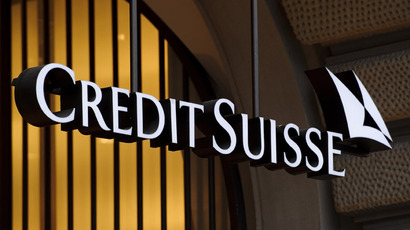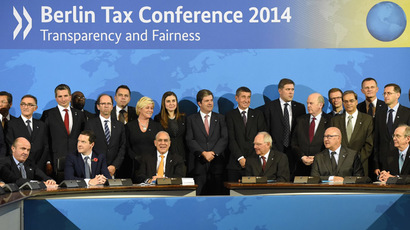Tax Haven No.1 - 340 global companies avoid billions in Luxembourg

Billions of dollars have secretly passed through Luxembourg, the heart of the EU, an investigation by journalists has unearthed in leaked documents. PepsiCo, IKEA, FedEx and 340 other international companies use the tiny country to slash their tax bills.
The 1,000 square mile country sandwiched between France, Germany, and Belgium is the center of EU tax dodging, but not because it offers a low income tax rate like Ireland or Cyprus or no taxes at all, like Malta. Officially, Luxembourg has an income tax rate of 29 percent, which is relatively high among developed economies.
However, companies use Luxembourg as a tax conduit because they can can send money in and out almost tax free.
Companies flock to the Grand Duchy because they can save on taxes by channeling billions through Luxembourg, according a new report by the International Consortium of Investigative Journalists (ICIJ), which reviewed 28,000 pages of confidential documents. The trove of documents can be found here.
American corporations have only had to pay 1.1 percent taxes or $1.04 billion on over $95 billion in overseas profits in 2012, according to data from the US Bureau of Economic Analysis.
More than 170 Fortune 500 companies have a Luxembourg subsidiary, according to Citizens for Tax Justice, a nonprofit research and advocacy group.
The EU has said they are already looking into the case, and will take "corrective actions" if necessary, spokesman of EU chief commissioner Jean-Claude Juncker told AFP following the leak.
The documents show PepsiCo used Luxembourg to channel at least $750 million to reduce its tax rate on the $1.4 billion purchase of JSC Lebedyansky, Russia’s largest juice maker. Shortly after, the subsidiary was moved to Bermuda.
Sweden’s furniture giant IKEA is using Luxembourg as a tax conduit by opening a Luxembourg holding company and a Luxembourg finance company, as well as a Liechtenstein foundation and a Swiss finance arm to “outsource” part of its financing operations.

US-based global transport company FedEx, used Luxembourg to send money from Brazil, Mexico, and France to Hong Kong, tax free. Luxembourg only taxes 0.25 percent on non-dividend income, which left 99.75 percent in profits and earnings untaxed.
“A Luxembourg structure is a way of stripping income from whatever country it comes from,’’ Stephen Shay, a tax professor at Harvard Law School and former US Treasury Department tax official, told the ICIJ.
According to Shay, Luxembourg “combines enormous flexibility to set up tax reduction schemes, along with binding tax rulings that are unique. It’s like a magical fairyland.”
Luxembourg’s economy is heavily reliant on income taxes, which account for 5 percent of the country’s gross domestic product.
The country has the highest volume of foreign investment in the EU, which contributes to the $2.73 trillion held by Luxembourg's investment funds, according to an estimate by the financial consulting firm Ogier.
A founding member of the EU, Luxembourg enjoys the privilege of tax secrecy and trust from the international financial community.
The European Commission, along with the G20, has made it their goal to oust secret banking regimes, and until recently, Luxembourg has been very reluctant to sign on.
However, in late October, along with the other 27 member states of the EU, Luxembourg pledged to build a collective financial data exchange starting in 2017 in a step towards ending banking secrecy. Austria will join in 2018.
Other EU countries use the tax haven model to their advantage. Malta has no corporate taxes, Cyprus only levies at 10 percent tax, and Ireland only 12.5 percent.














